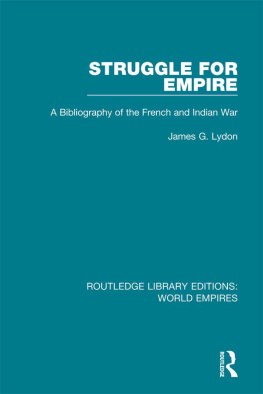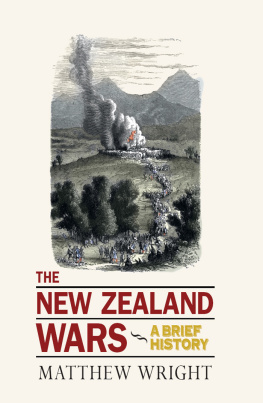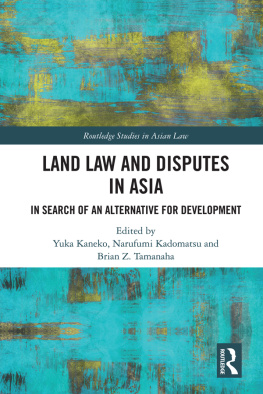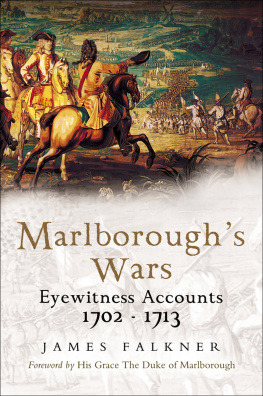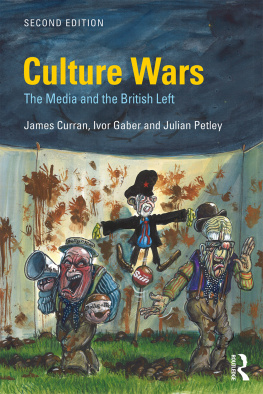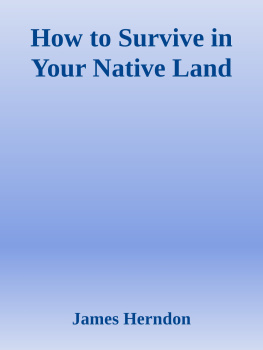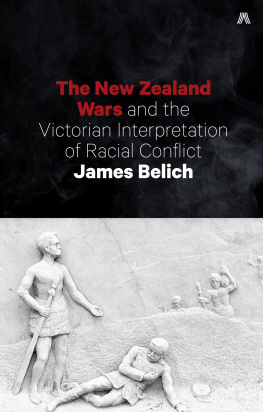DeMare Brian James - Land Wars
Here you can read online DeMare Brian James - Land Wars full text of the book (entire story) in english for free. Download pdf and epub, get meaning, cover and reviews about this ebook. year: 2019, publisher: Stanford University Press, genre: Politics. Description of the work, (preface) as well as reviews are available. Best literature library LitArk.com created for fans of good reading and offers a wide selection of genres:
Romance novel
Science fiction
Adventure
Detective
Science
History
Home and family
Prose
Art
Politics
Computer
Non-fiction
Religion
Business
Children
Humor
Choose a favorite category and find really read worthwhile books. Enjoy immersion in the world of imagination, feel the emotions of the characters or learn something new for yourself, make an fascinating discovery.

- Book:Land Wars
- Author:
- Publisher:Stanford University Press
- Genre:
- Year:2019
- Rating:5 / 5
- Favourites:Add to favourites
- Your mark:
- 100
- 1
- 2
- 3
- 4
- 5
Land Wars: summary, description and annotation
We offer to read an annotation, description, summary or preface (depends on what the author of the book "Land Wars" wrote himself). If you haven't found the necessary information about the book — write in the comments, we will try to find it.
Land Wars — read online for free the complete book (whole text) full work
Below is the text of the book, divided by pages. System saving the place of the last page read, allows you to conveniently read the book "Land Wars" online for free, without having to search again every time where you left off. Put a bookmark, and you can go to the page where you finished reading at any time.
Font size:
Interval:
Bookmark:
Brian DeMare
LAND WARS
The Story of Chinas Agrarian Revolution
Stanford University Press
Stanford, California
Stanford University Press
Stanford, California
2019 by the Board of Trustees of the Leland Stanford Junior University. All rights reserved.
No part of this book may be reproduced or transmitted in any form or by any means, electronic or mechanical, including photocopying and recording, or in any information storage or retrieval system without the prior written permission of Stanford University Press.
Printed in the United States of America on acid-free, archival-quality paper
Library of Congress Cataloging-in-Publication Data
Names: DeMare, Brian James, author.
Title: Land wars : the story of China's agrarian revolution / Brian DeMare.
Description: Stanford, California : Stanford University Press, 2019. | Includes bibliographical references and index.
Identifiers: LCCN 2018052952 (print) | LCCN 2019003609 (ebook) | ISBN 9781503609525 | ISBN 9781503608498 (cloth : alk. paper) | ISBN 9781503609518 (pbk. : alk. paper)
Subjects: LCSH: Land reformChinaHistory20th century. | Social conflictChinaHistory20th century. | Collectivization of agricultureChinaHistory20th century. | Communism and agricultureChinaHistory20th century. | Propaganda, CommunistChinaHistory20th century. | Mao, Zedong, 18931976Political and social views. | ChinaRural conditions20th century. | ChinaHistoryCivil War, 19451949.
Classification: LCC HD1333.C6 (ebook) | LCC HD1333.C6 D45 2019 (print) | DDC 338.10951/09045dc23
LC record available at https://lccn.loc.gov/2018052952
Cover design: John Barnett | 4 Eyes
For Nina. For Miles.
CONTENTS
PREFACE
Throughout decades of tumultuous revolutionary fervor, China remained a deeply rural nation, home to hundreds of millions of villagers dispersed within a staggeringly diverse countryside. Between 1945 and 1952, these villagers underwent agrarian revolution: Mao Zedongs attempt to bring his vision of rural China, at once egalitarian and confrontational, to life. Mao and his comrades in the Communist Party, declaring the countryside to be under feudal control, dispatched work teams to the countryside to totally transform village China. First came campaigns targeting feared strongmen, the cruelest of Chinas rural exploiters, and those who had collaborated with Japanese invaders. Only then came land reform (tudi gaige), a confrontational program of land redistribution that promised economic prosperity and socialist liberation.
During land reform, impoverished farmers were molded into peasant activists through rigorous ideological training, a process that Communist Party work teams carefully managed. These teams, largely composed of urban intellectuals, helped give every villager a new Maoist class label, the most feared being the landlord classification. Unlucky landlords were struggled, a violent and humiliating form of public class conflict that resulted in countless deaths. According to Maos grand tale of rural revolution, passage through land reforms fierce crucible of class struggle awakened villagers to their power as the great peasant masses who would create a new China. The importance of this story of agrarian revolution to the course of modern Chinese history cannot be overstated. Early years of campaigning helped bring the Chinese Communist Party to power. After the founding of the Peoples Republic of China (PRC) in 1949, massive rounds of land reform cemented the partys rule over its vast but young state. And even today, the partys claim to have liberated Chinas peasant masses remains a bedrock of its political legitimacy.
Due to its scope and complexity, Mao Zedongs agrarian revolution has proved an uneasy topic for historical inquiry. Over the course of over a half-dozen years, the Communist Party launched systematic and thorough campaigns in the hopes of completely transforming the Chinese countryside. Maos attempt to remake village China was not a single event in one place and time, but a long series of interrelated campaigns with differing terrains, land laws, and political contexts. During these years, moreover, the Communists went from revolutionary upstarts to rulers of the worlds most populous nation. Transcribing the history of these campaigns has been further complicated by the powerful stories that the Communists told about their revolution. These stories, fully fleshed out in novels claiming to realistically represent the entire process of local transformation, have done much to confuse the lines between the literal and the literary. Even nonfiction accounts of land reform owe much to Maos narrative of rural revolution.
This study investigates the entire process of agrarian revolution in order to explore the discrepancies and disjunctions within the campaigns. It also recognizes the power of the Maoist narrative of exploited peasants who found liberation through class struggle. During the years of land reform, this story was inescapable. Chinese citizens need not read the lengthy novels penned by party authors on rural revolution or attend the operatic performances that brought rural class struggle onstage. Even the illiterate could attend huge exhibits that meticulously showed the transition from the feudal past to the liberated future. I wrote this book because of my belief that historians must engage Maos narrative of revolution in order to understand what truly occurred in rural China as the Communists came to power. The party indoctrinated a vast army of would-be revolutionaries with this story before dispatching them to the countryside in work teams to make fiction become reality. In writing this book, I drew heavily on the sources historians have traditionally employed to understand rural China: archival documents, internal party reports, newspaper articles, and firsthand accounts of village life. But I also sought inspiration from the powerful stories that have been told about this revolution. Having studied land reform for almost two decades, I have found the lines between fact and fiction blurred and permeable. This book is my attempt to make sense of how the stories told about the revolution became the revolution itself.
, team members search out poor peasant activists and train them to speak out against their wealthy neighbors. During later chapters, class statuses are determined and counterrevolutionary plots discovered. In this book, just as in Maos story of agrarian revolution, everything builds up to class struggle, the ferocious ritual that allowed peasants to obtain their true liberation by publicly attacking landlords and other class enemies. But while this book uses the land reform plotline and draws on stories of revolution, it simultaneously deconstructs and questions Maos narrative to show how it was manufactured, deployed, and received in a diverse countryside, all too often with unexpected, even deadly, results.
Investigation into the relationship between revolution and narrative reveals that stories have shaped not only our understanding of the past, but the contours of history itself. Despite the diversity of Chinas vast and populous countryside, the party demanded that work teams overseeing agrarian revolution follow its established plotline, which assumed the need for fierce class struggle against evil landlords. The stories the party told about land reform and other mass campaigns in the countryside made agrarian revolution understandable and desirable. But this tale was never intended to be confined to the page and would prove to have massive implications for China. Even today, the dissonance between Maos grand story and the realities of these years of campaigning reverberate across the countryside.
This project originated many years ago when I was a graduate student at UCLA, studying with Kathryn Bernhart, Philip Huang, and Lynn Hunt. Since then I have accumulated a tremendous debt to many scholars. Foremost among them are the colleagues who found the time to provide invaluable feedback on various chapters of this book: Jeremy Brown, Christian Hess, Jeffery Javed, Matthew Johnson, Fabio Lanza, Fangchun Li, and Aminda Smith. Of course, the remaining mistakes are mine alone. I also thank Andrew Endrey and Felix Wemheuer for helping me access new historical materials. I commend their generosity and commitment to academic exchange. Many others helped me think through the challenges of writing this book, including Deng Hongqin, Edward Friedman, Carma Hinton, Huaiyin Li, Ma Weiqiang, Zhao Ma, Ralph Thaxton, and Yiching Wu.
Next pageFont size:
Interval:
Bookmark:
Similar books «Land Wars»
Look at similar books to Land Wars. We have selected literature similar in name and meaning in the hope of providing readers with more options to find new, interesting, not yet read works.
Discussion, reviews of the book Land Wars and just readers' own opinions. Leave your comments, write what you think about the work, its meaning or the main characters. Specify what exactly you liked and what you didn't like, and why you think so.

